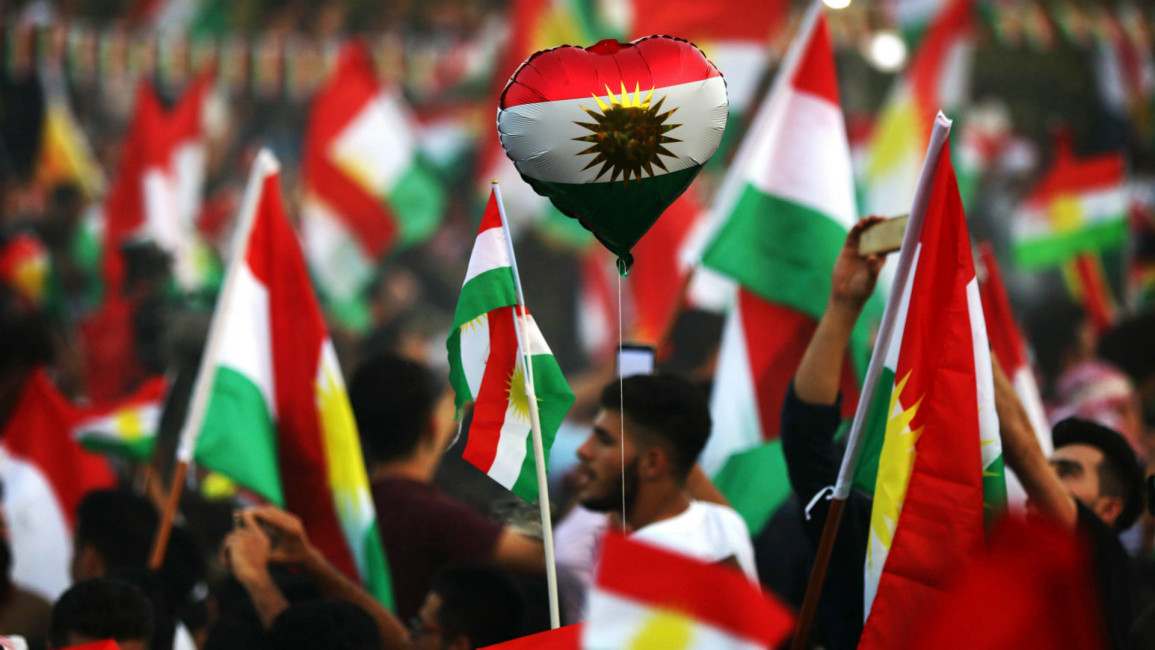
Is oil motivating the Kurdish referendum?
Iraqi Kurdistan's independence referendum draws near. On September 25, millions of Kurds will get their say on breaking away from Iraq.
As we have seen, the 'yes' vote barely has international support. From the United States, to Iran and Turkey – who reportedly may "team up" to tackle Kurdish groups, all claim it will destabilise the region.
Baghdad itself has much to lose. The central government has consistently condemned the referendum, calling it "illegal" and "unconstitutional".
Yet the Kurdish Regional Government (KRG) Prime Minister Masoud Barzani will push on for his coveted 'yes' vote. And he has clear cut motives for doing so.
Unlike other strives for independence, it is hardly about political concerns. Iraqi Kurdistan is already largely politically independent. It possesses its own parliament – a process beginning in 1992 after the Gulf War weakened Saddam Hussein's government and the US created a no-fly zone over the Kurdish region. It also has its own army, the Peshmerga.
What the KRG lacks is economic freedom. Iraq's federal constitution stipulates that all oil revenue must be shared equally across the whole country. This has caused financial disputes between Erbil and Baghdad.
It is easy to understand why this would cause tensions. The Kurdish autonomous region sits on sits on about 40 percent of Iraq's oil wealth, equating to roughly 45 billion barrels of oil. This is a vast amount of oil within the country, not to mention in context to the rest of the world. Even former BP boss Tony Hayward dubbed Iraqi Kurdistan "one of the last great frontiers" in the oil and gas industry.
Yet the profit that the KRG can actually make from its oil is greatly restricted. Independence is a way to transform this. Iraqi Kurdistan would fully be able to reap the profits of its oil, and have more freedom to become a key player in the oil markets.
Oil also explains the dispute over Kirkuk: a contentious city for both Erbil and Baghdad. It was captured by the KRG in 2014, as ISIS swept up the region. Soon after achieving victory, Mahmoud Barzani visited the city and vowed that the Peshmerga would never withdraw.
Kirkuk, controversially labelled the 'Kurdish Jerusalem' by Patriotic Union of Kurdistan (PUK) leader and former Iraqi president Jalal Talibani, is a vital city for many Kurds. It was often a central demand for Kurds negotiating statehood with Baghdad throughout the 20th century.
What makes the city so special? It is blessed by an enormous oil supply possess approximately 3 percent of the entire world's oil reserves. No wonder both Baghdad and Erbil see it as a life-and death matter. For the Kurds, Kirkuk would provide a strong economic base for a future state.
 |
The KRG does not just seek independence; it seeks to manipulate its post-independence borders to maximise oil revenue, to support a viable state. |  |
Baghdad after all reacted furiously at Kirkuk's decision to partake in the referendum vote.
Joost Hiltermann, program director for the Middle East and North Africa at the International Crisis Group, believes that while Baghdad may accept negotiations on independence, Kirkuk is different. Moreover, he argues it will be a big motive for how the post-independence borders are shaped.
"Kirkuk's oil is a primary motivator for where the boundaries are drawn. The Kurds need Kirkuk inside the Kurdish region, while the central government is loath to give it up. It is an absolute red line for everyone in Baghdad who is not a Kurd", Hiltermann said.
The prospect of the KRG gaining Kirkuk undoubtedly bothers Iran too, who tried to capture Kirkuk in the wake of the 1991 Gulf War, and now a key ally of Iraq – and is widely believed to dominate the country after the chaos since 2003.
Yet for the Kurds, consolidating their control of such a substantial oil source is essential for achieving their long-standing ambition of independence, which was continuously blocked by successive regimes throughout the past century.
For this reason, the KRG does not just seek independence; it seeks to manipulate its post-independence borders to maximise oil revenue, to support a viable state.
Even if complete independence were not viable, oil at least serves as a motivating factor for holding the referendum.
Sa'ad al-Muttalibi, a member of the official Baghdad Security Council, holds this view. Muttalibi believes that the KRG could be using the referendum as a 'political card', to blackmail the Iraqi government into gaining higher oil revenues.
Barzani must negotiate with Baghdad to secure independence anyway. Simply gaining a 'yes' vote is not enough. After all, the referendum is not binding and Barzani knows all of this. A victory would put the KRG in a greater negotiating position for greater economic privileges however.
While other factors surely motivate the referendum desire, oil is clearly a driving force behind disputes between Erbil and Baghdad, causing the former to desire secession.
In any case, the KRG must focus more on dialogue with Baghdad if it wants greater oil control. Yet as independence and oil are both sensitive issues, a clash of interests and greater friction between the two should be expected after September 25.
Jonathan Fenton-Harvey is a freelance journalist who has contributed to outlets such as The New Arab, Counterpunch, Middle East Eye and Tribune Magazine.
Follow us on Twitter:�@The_NewArab



